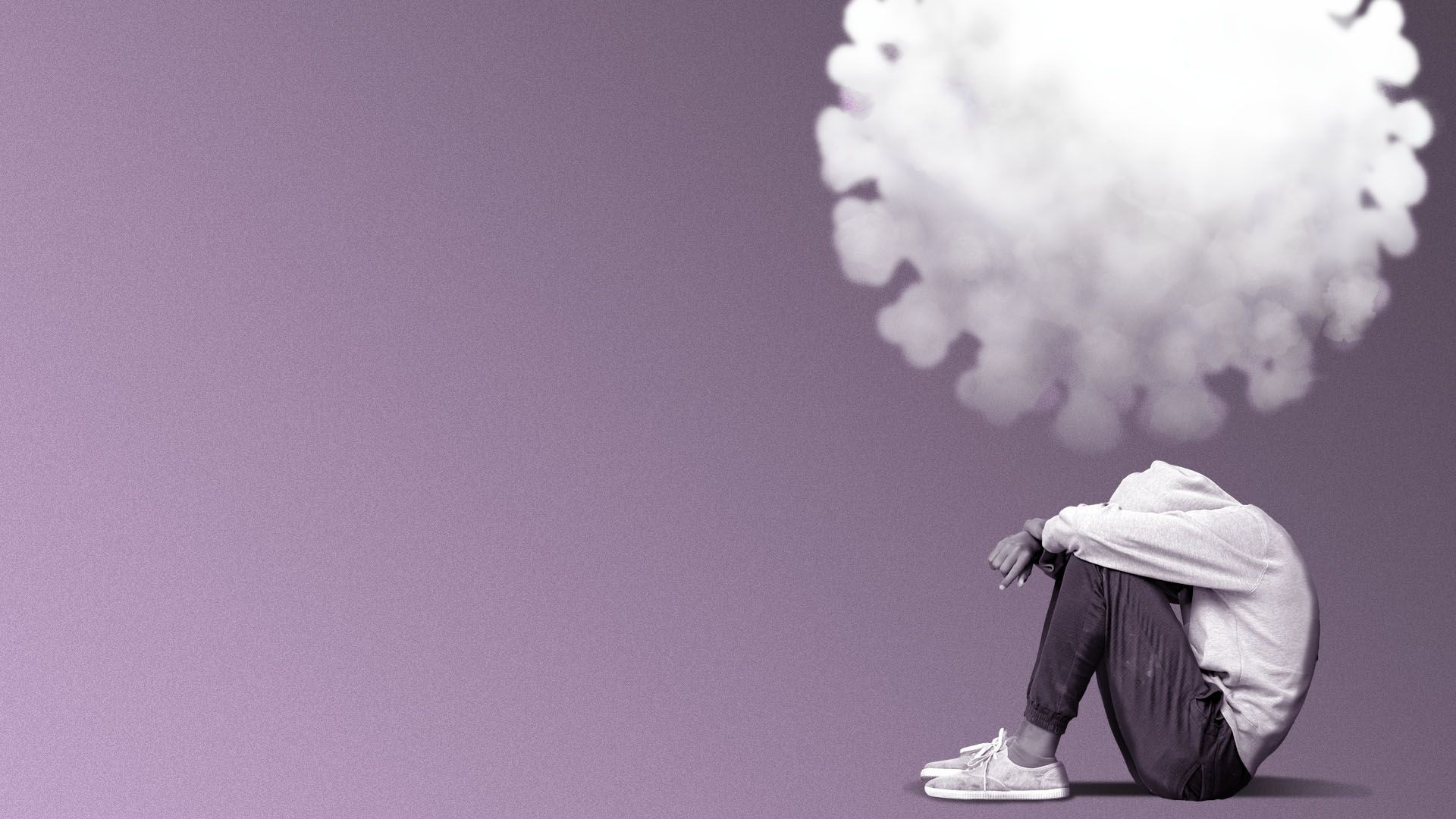How "COVID fatigue" clouds judgment and endangers public health
Add Axios as your preferred source to
see more of our stories on Google.

Illustration: Sarah Grillo/Axios
Compounded stress and exhaustion from worrying about the coronavirus pandemic since the start of the year is leading to "COVID fatigue" and serious mental health issues, some medical experts say.
Why it matters: This can lead to risky behavior that can increase the spread of the coronavirus as well as raise levels of depression and anxiety that foment the abuse of alcohol or drugs.
State of play: As schools, universities and businesses reopen, there's been anecdotal evidence people are taking riskier behaviors via large gatherings and other venues.
- "We're still very much in the throes of this and I have been arguing that we have more days ahead of us than we do behind us. So, we may feel like we are done with this pandemic, but, as the old saying goes, the pandemic is not done with us," Ashish Jha, dean of the School of Public Health at Brown University, said Wednesday at the O'Neill Institute Colloquium.
- Jha said it's "unrealistic" to believe the pandemic will be controlled before the summer or fall of 2021.
- Some experts say, though, the realization that this pandemic will last longer than they first expected is leading to people exhibiting "COVID fatigue."
What's happening: "COVID fatigue is a shorthand way of talking about a constellation of challenges that people are facing that are leading to just an overall sense of exhaustion," David Sbarra, a clinical psychologist and professor at the University of Arizona, tells Axios.
- People are facing stressors that range from the constant need to change our normal behavior to mitigate the virus to the economic impact from an unemployment tsunami in a society without a strong social safety net, he says.
- "We know that people are feeling burnt out by trying to maintain and manage work in several different roles. For instance, if you're a parent at home and you have young children, you're trying to facilitate their home schooling and their virtual learning while also trying to do your job," Sbarra says.
- "We're more depressed, we're lonelier, and we're just exhausted by this," he adds.
The length of the pandemic is also a factor in people's coping mechanisms, says Kaye Hermanson, a clinical psychologist at UC Davis Health.
- "When it's gone on this long, our brains have to try to find a way to accommodate that. I think a lot of people with fatigue, who kind of give up on doing what they know is recommended ... may have been dealing with some cognitive dissonance," Hermanson says.
As a result, there's been "changes in clinically significant and meaningful rates of anxiety and depression," Sbarra says. This is seen in a recent Census Bureau report and in higher mental health screenings.
- And there's been a "profound increase" in so-called deaths of despair from alcohol and substance abuse as well as death by suicide, he points out, calling it "one of the most dire warnings signs happening right now."
- A recent analysis estimates there could be 75,000 additional deaths from alcohol and drug misuse and suicide from the pandemic.
Some steps to take:
- "Don't doomscroll through Twitter right before going to bed," Sbarra says. Make sure to get enough sleep and and eat healthy.
- Practice positive thinking, go for a socially distanced walk outside, and reach out to others for support, like a pastor or a counselor, Hermanson says. She noted one silver lining is that mental health therapists have pinned down some best practices for telehealth.
Go deeper: The risk of loneliness and trauma from COVID-19.
